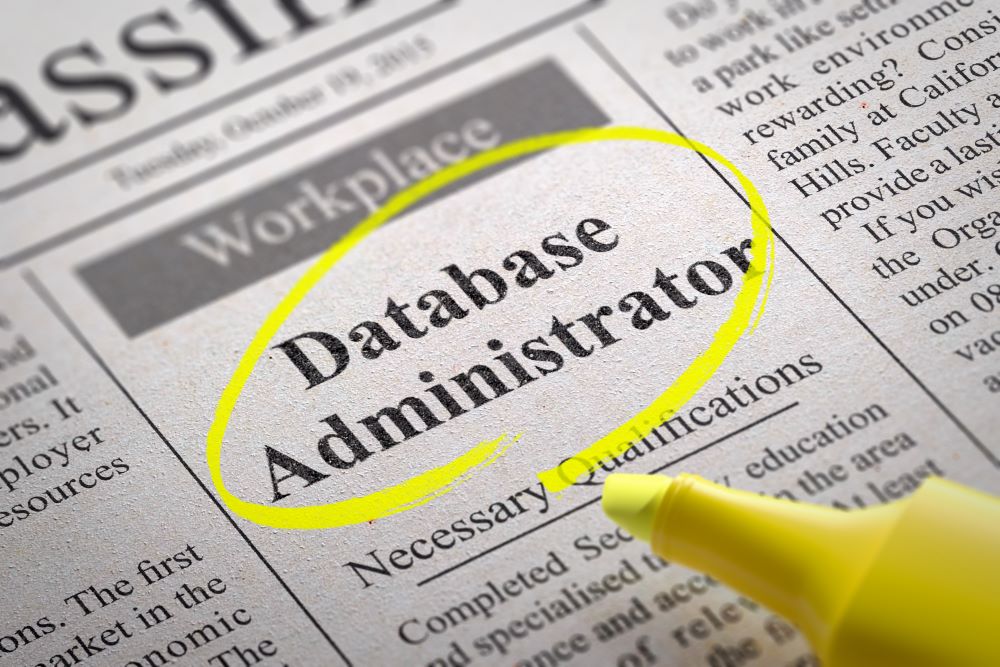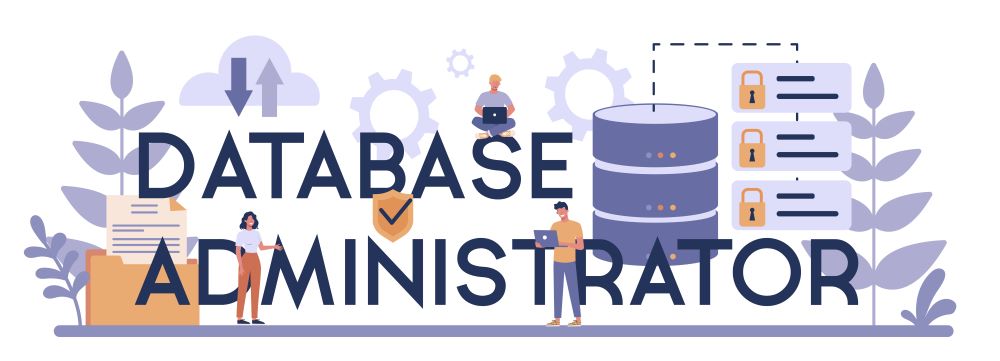Today, data forms an integral part of any business enterprise. Managers use data to make business-related decisions. Data also makes it easier for workers to find the information they want when performing their tasks. There’s a need to manage business data.
Managing business data isn’t easy, especially for business owners without data management skills. That’s why you’ll always see businesses finding professionals to help manage their databases. That’s why the demand for database administrators is always high. Pursuing a career in this field won’t disappoint you. You’re most likely to get employment.
If you’re considering pursuing a career in database administration, this article has got all your questions answered. But before that, you first need to understand what a database administrator is.
Overview Of Database Administrator

A database administrator is an information technology expert who helps businesses manage their data. They enable business owners and employees to utilize software or computer applications when storing and retrieving data. This ensures business data is secure from hackers and other unauthorized persons.
Besides, a database administrator is responsible for backing up and updating business systems to ensure no lost data. In simple terms, a database administrator ensures that databases operate efficiently and are free from errors.
How To Become A Database Administrator
Before you start providing services to many businesses, you’ll need first to pursue a career in database administration. Some of the major questions you need to answer include the following:
- Where Can I Learn The Skill To Become A Database Administrator?
The best way to improve your capabilities as a database administrator is to upskill by going on dedicated training courses for the specific processes involved, the main ones being Structured Query Language (SQL) and Excel.
Before hiring you, most employers will request a certificate from a recognizable institution. Consider getting your database administration skills from a reputable school to increase your employability rate. You can get to know a specific school’s reputation by asking for recommendations from other students or reading online reviews.
Your competence in database administration will greatly depend on your trainers. If you’re well trained, you can gain more knowledge. Not only will this boost your employability rate, but it’ll also make your work easier when performing database administration roles. It’d be a good idea to select a school with the most qualified and dedicated trainers.
- How Do You Get Work Experience?

Getting a bachelor’s or masters’ degree in database administration isn’t enough. Before you start searching for employment, you first need to gain work experience.
Work experience is the time spent in a workstation learning about database administration roles. One of the best ways to gain work experience is by applying for internships in companies that provide database administration services.
An internship is a scenario where you provide services with or without payment. The main aim of going for the internship is to gain related skills and experience.
There are several benefits of gaining work experience. First, it enables you to have a deeper understanding of the work environment. In other words, it allows you to apply the skills you learned at school in real-world situations. Secondly, it allows you to know what employers expect from you. And lastly, work experience enables you to explore career opportunities.
- Do You Need Professional Certification?
Like other professionals, you need certification for database administration. Professional certification is a permit that allows you to practice or provide database administration services.
It also shows that you’ve got the right knowledge, skills, and experiences to perform database administration roles. Database administration certifications are issued by the relevant software vendor.
Before issuing you a database administration certification, most vendors require you to sit and pass specific examinations. Besides, they’ll require you to have work experience of a stipulated duration.
- What Other Skills Do You Need To Possess?

Apart from the professional qualification, you also need to possess other important soft skills. These include:
- Communication Skills
As a database administrator of an organization, you’ll be communicating with several people daily. These include business employees, customers, and other stakeholders. Ensure you’ve got better communication skills, both verbal and written.
Better communication skills enable you to deliver clear information to users. This helps build trust and better relationships with your employer and other stakeholders.
- Organization Skills
As earlier noted, the main role of a database administrator is to manage data for their client. To help draw meaningful conclusions from data, it must be well organized. That’s why a database administrator needs to have better organization skills.
Organization skills enable you to store data in a way that it’s easily accessible to users. It shows that you’re a reliable professional. With better organization skills, you can easily win the trust of employers. One of the best ways to boost your database organization skills is by attending workshops or forums.
- Creativity Skills
The world of information technology is changing at a fast rate. Tools and techniques used to manage data a few months ago might not be helpful today. In other words, how businesses collect and store data is gradually changing. Businesses owners are finding database administrators with creative skills.
Creativity skills enable you to develop and implement new strategies for collecting and storing data. Such strategies should help boost the security of business data. Possessing creativity skills gives your employer peace of mind because they know that their data is secure and well-managed.
- Problem-Solving Skills
Database administrators need to solve a lot of business issues. For instance, they must find solutions to current business cybersecurity threats and data loss. You should strive to improve your problem-solving skills.
- Analytical Skills
Lastly, you also need to boost your analytical skills. Most businesses deal with large amounts of data. Therefore, you should have the ability to analyze the data and draw conclusions from it. In other words, you must be able to study the data, whether structured or unstructured and advise your employer accordingly. You can improve your analytical skills by playing brain games, being more observant, and learning new things where possible.
Takeaway
If you’re interested in dealing with data, you should pursue a career in database administration. Gaining knowledge and experience in database administration enables you to manage data on behalf of your client or employer.
You must ensure you follow the right steps to obtain database administration qualifications. You can achieve this by answering the above-explained questions.

